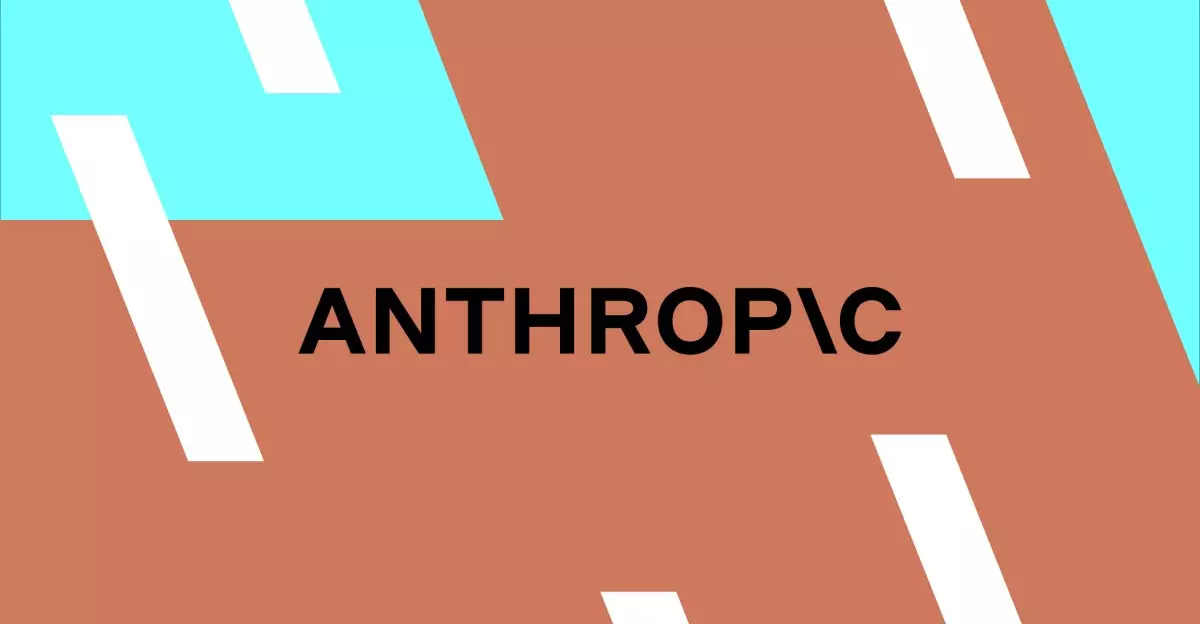As artificial intelligence continues to evolve at a breathtaking pace, the launch of Claude 3.7 Sonnet by Anthropic marks a significant milestone in the field of AI-driven coding tools. This new model, along with its innovative coding assistant dubbed Claude Code, challenges the status quo of AI capabilities and presents a more integrated approach to problem-solving in the tech landscape.
A New Era of Hybrid Reasoning Models
The advent of Claude 3.7 Sonnet signifies a refinement in AI reasoning models. Unlike its predecessors, this hybrid model is designed to tackle more intricate problems that demand a sophisticated understanding of concepts such as coding, finance, and legal tasks. Dianne Penn, Anthropic’s product research lead, emphasizes that reasoning should be an inherent trait of the AI rather than an isolated function. This marks a philosophical shift in how AI systems are designed, suggesting that enhanced reasoning abilities can improve user experience without necessitating separate reasoning models.
The emergence of this new model comes at a time when the demand for coding tools is rapidly increasing. With Claude Code positioned as an “active collaborator,” the tool boasts capabilities that go beyond mere code suggestions. It can actively search, edit, and manage code as well as handle testing and integration into platforms like GitHub. This comprehensive approach is not only appealing to individual developers but also transforms the way teams collaborate on coding projects.
Comparing Costs and Efficiency
In an industry that often struggles with escalating expenses related to AI operation, Claude 3.7 Sonnet remarkably maintains cost parity with its predecessor, 3.5 Sonnet. Priced at $3 per million input tokens and $15 per million output tokens, this pricing strategy is attractive to developers and businesses alike. As AI models become increasingly integral to operations, keeping costs manageable is crucial for widespread adoption.
Moreover, an essential aspect of Claude 3.7 Sonnet is its refined ability to perform tasks efficiently. The model addresses both simple queries and complex prompts in a systematic manner, catering to various user needs. When developers express specific requirements, such as response time limitations, Anthropic allows these parameters to shape the AI’s operations, ensuring adaptability in various contexts. This flexibility enhances the model’s usability and its alignment with developer expectations in professional environments.
Interestingly, Anthropic has employed a playful approach to evaluate the new model’s capabilities, utilizing classic video games to benchmark performance. The transformation from Claude 3.5 Sonnet, which struggled in early stages of a Pokémón game, to its successor, which can successfully navigate challenges and defeat gym leaders, encapsulates the strides made in coding and reasoning. This unique method of development testing illustrates a less conventional but effective strategy for identifying an AI’s learning and adaptability when faced with increasingly complex scenarios.
The interactive nature of this approach not only engages developers but also provides a tangible demonstration of the model’s proficiency. It underscores the notion that AI models can benefit significantly from iterative learning processes, pushing the boundaries of traditional testing metrics.
In an era dominated by rapid advancements in AI, where each week unveils new models or significant updates, Anthropic’s recent developments with Claude 3.7 Sonnet suggest that it remains a forerunner in this competitive space. The continuous improvement in capabilities, alongside the thoughtful integration of user feedback, positions Anthropic advantageously as the industry contemplates a future filled with AI systems that operate more holistically.
The race among AI companies has intensified, pushing developers and researchers to evolve their solutions rapidly. As exemplified by notable figures such as Elon Musk, who introduced Grok-3 with impressive features, Anthropic’s next steps will be pivotal in influencing trends in AI integration across various sectors.
The release of Claude 3.7 Sonnet and Claude Code reflects more than just an incremental advancement; it symbolizes Anthropic’s vision for smarter, more collaborative AI systems. This evolution could redefine coding practices and broader technological interactions, indicating a transformative phase in the AI industry that promises to streamline processes and bolster creativity for developers worldwide.


Leave a Reply